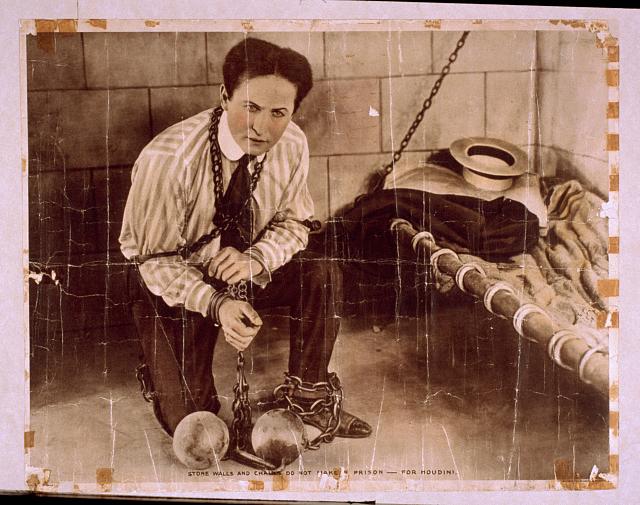From the Congressional Glossary – Including Legislative and Budget Terms
Appeal the Ruling of the Chair

The right to appeal from a decision of the Chair on a question of order is derived from the English Parliament and is recognized under clause 5 of House Rule I, which dates from 1789. This right of appeal, which may be invoked by any House member, protects the House against arbitrary control by the Speaker.
Member: I (respectfully) appeal the ruling of the Chair.
Chair: The question is, shall the decision of the Chair stand as the judgment of the House [or the Committee]?
An appeal is debatable but is subject to the motions for the previous question and to table in the House. In the Committee of the Whole, an appeal is subject to the motion to limit debate and to rise and close debate in the House. The vote on an appeal may be taken by record vote. A majority vote sustains the ruling. The weight of precedent indicates that a tie vote (especially where the Chair has not voted to make the tie) sustains the ruling as well. The Chair may vote to make or break a tie and may cast a vote in favor of the decision.
An appeal from a ruling of the Chair goes only to the propriety of the ruling; the vote thereon should not be interpreted as a vote on the merits of the issue at hand.
Clause 5 of House Rule I provides the right of appeal from decisions of the Speaker on questions of order. An appeal may also be taken from the ruling of the chair of the Committee of the Whole on a question of order. For example, an appeal may be taken from a ruling of the Chair on the germaneness of an amendment or that an amendment proposes to change a portion of the bill already passed in the reading. The Speaker’s decision on a question of order is not subject to appeal if the decision is one that falls within the discretionary authority of the Chair.
In the Committee of the Whole, a member can move to close debate (end debate) on a pending amendment or to limit debate at a specified time. (After the last section of the bill has been read in the House sitting as the House, a member can move the previous question. This motion is not in order in the Committee of the Whole.) Unlike the previous question, closing or limiting debate does not preclude offering additional amendments. It means that all subsequent amendments are decided without debate.
Floor Debate on H.R. 3350, the “Keep Your Health Plan Act of 2013”
Also see
- Committee of the Whole
- Germane / Germaneness
- Point of Order
- Previous Question
- Recorded Vote
- Speaker
- § 6.120 Committee of the Whole: Amendment Process, in Congressional Deskbook
More
- “Suspension of the Rules in the House of Representatives,” CRS Report RL32474 (53-page PDF
 )
) - “Points of Order, Rulings, and Appeals in the House of Representatives,” CRS Report 98-307 (6-page PDF
 )
) - “The Amending Process in the House of Representatives,” CRS Report 98-995 (49-page PDF
 )
) - “The Legislative Process on the House Floor: An Introduction,” CRS Report 95-563 (18-page PDF
 )
) - “Commonly Used Motions and Requests in the House of Representatives,” CRS Report RL32207 (20-page PDF
 )
) - “Points of Order in the Congressional Budget Process,” CRS Report 97-865 (21-page PDF
 )
) - “House Committee Markups: Manual of Procedures and Procedural Strategies,” CRS Report R41083 (220-page PDF
 )
) - “The Committee Markup Process in the House of Representatives,” CRS Report RL30244 (29-page PDF
 )
)
Courses
- Congressional Operations Briefing – Capitol Hill Workshop
- Drafting Federal Legislation and Amendments
- Writing for Government and Business: Critical Thinking and Writing
- Custom, On-Site Training
- Drafting Effective Federal Legislation and Amendments in a Nutshell, Audio Course on CD
- Congress, the Legislative Process, and the Fundamentals of Lawmaking Series, a Nine-Course series on CD
Publications

Legislative Drafter’s Deskbook: A Practical Guide

Pocket Constitution

Citizen’s Handbook to Influencing Elected Officials: A Guide for Citizen Lobbyists and Grassroots Advocates

Congressional Procedure
CongressionalGlossary.com, from TheCapitol.Net
For more than 40 years, TheCapitol.Net and its predecessor, Congressional Quarterly Executive Conferences, have been teaching professionals from government, military, business, and NGOs about the dynamics and operations of the legislative and executive branches and how to work with them.
Our custom on-site and online training, publications, and audio courses include congressional operations, legislative and budget process, communication and advocacy, media and public relations, testifying before Congress, research skills, legislative drafting, critical thinking and writing, and more.
TheCapitol.Net is on the GSA Schedule, MAS, for custom on-site and online training. GSA Contract GS02F0192X
TheCapitol.Net is now owned by the Sunwater Institute.
Teaching how Washington and Congress work ™

